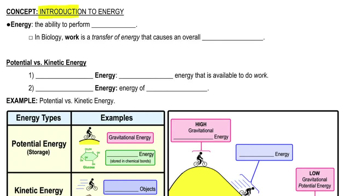Multiple Choice
Which of the following groups is capable of hydrogen bonding with an oxygen atom on another functional group?
1448
views
 Verified step by step guidance
Verified step by step guidance Verified video answer for a similar problem:
Verified video answer for a similar problem:



 6:04m
6:04mMaster Functional Groups with a bite sized video explanation from Bruce Bryan
Start learning